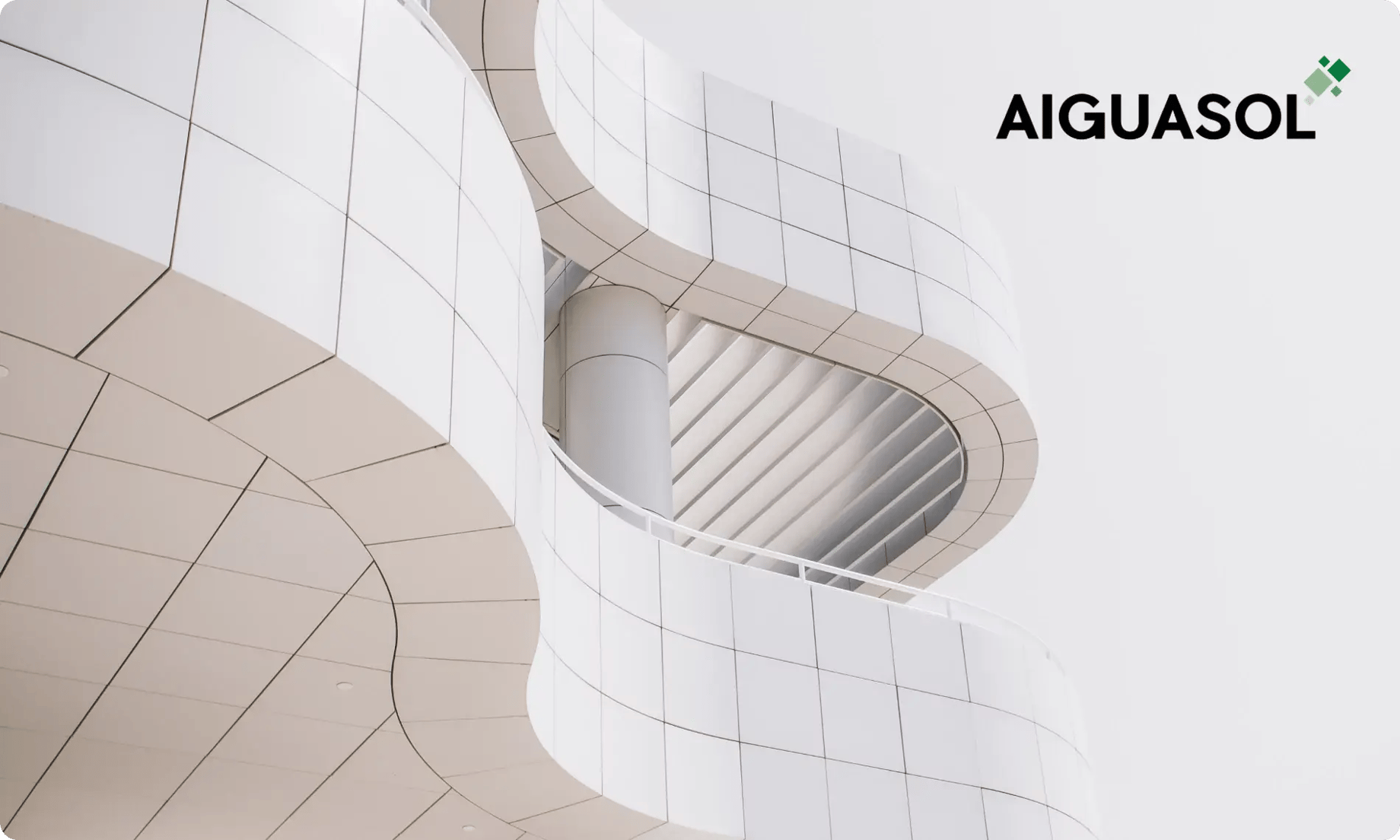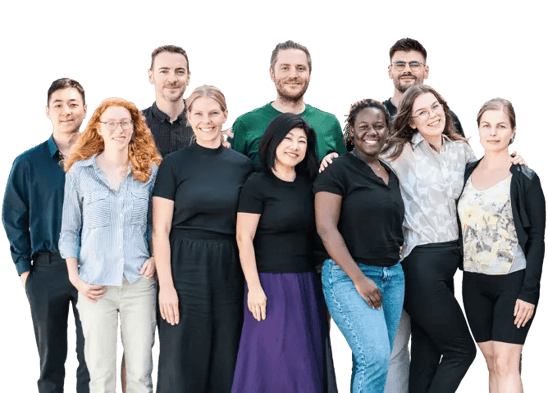
The Infinito Delicias is a rehabilitation project transforming a former office and warehouse space in Madrid into a vibrant cultural center, prioritizing sustainable practices.
"In the sustainable building department, we provide LCA and carbon expertise across markets. We intervene from the design stage to the execution of the project, and we work on new construction and rehabilitation projects, depending on the environmental goal of it. This is why we choose One Click LCA as the motor to handle our carbon assessments"
—Lissette Campoverde, LCA Built Environment Specialist at Aiguasol
Aiguasol is a working cooperative that provides energy and environmental consulting services through innovative solutions to help and accompany businesses, governments, and other cooperatives in their decarbonization journey and renewable energy integration. Founded in 1999, the firm is based in Barcelona and the Basque Country, and its central offices work on projects throughout Europe, Asia and Africa. Aiguasol's interdisciplinary team brings together professionals from diverse fields, including engineers, architects, physicists, and high level experts across various disciplines, and has six departments: sustainable building, energy systems, data & software solutions, implementation, international consultancy and innovation. Since 2020, Aiguasol is a Certified B Corporation.
Lissette Campoverde, LCA Built Environment Specialist at Aiguasol, explains how One Click LCA supports their sustainable building projects by integrating with existing workflows and facilitating data management, scenario modeling, and decision-making.
Integrate LCA to improve your sustainable design workflow
Collaborative decision-making for sustainable future
Carbon assessment projects pose several challenges. We believe One Click LCA software is a powerful tool for addressing questions around emissions, but in these types of projects, there’s more involved — especially with large projects. Specifically, when the number of stakeholders is significant, it’s not just one stakeholder, or even directly your own client. You’re working with architects, engineers, and many others. It’s crucial to establish clear communication channels so everyone understands their role, how data collection and data management will be handled and updated, and the environmental goal to ensure accurate reporting.
Infinito Delicias, an award-winning rehabilitation project in Spain
Transforming a 5-story office building combined with an industrial warehouse into a cultural center for citizens, enterprises, and foundations.

- 2780.3 m2 rehabilitation project
- Reference period: 60 years
- System boundary: Embodied carbon [A1-A5] [B1-B5] [C1-C4]; D [Benefits]
- 📍Madrid, Spain
Image source: https://husos.info/& https://
The project and key sustainable building practices
Infinito Delicias, a strategic project led by Husos, Elii, Ultrazul and supported by Daniel and Nina Carasso Foundation, is an example of a holistic rehabilitation of an industrial building into a lively cultural hub. One of the significant achievements of the project is the reuse of 95% of the existing structure. The design emphasizes material circularity through the nearly exclusive use of biomaterials and recycled elements, such as biodegradable cork insulation and locally sourced pine wood.

Image source: https://husos.info/& https://
Aiguasol, alongside SOCOTEC Spain, conducted a bioclimatic assessment of the building to address thermal comfort, minimizing the environmental impact of the operational energy and reducing reliance on mechanical ventilation and air-conditioning systems.
Using One Click LCA to reduce embodied carbon and improve team cohesion
The main concern for the architectural design team was to compare and quantify the traditional design (545 kg Co2e/m2) versus a rehabilitation design (240 kg Co2e/m2). Using One Click LCA, we could see that the rehabilitation project resulted in a 50% embodied carbon reduction through reusing the structure and employing regenerative materials. The reports also gave us insights into the impact of regenerative materials on reducing the total embodied carbon emissions.
For this project, the architectural design and structural engineering teams decided to:
- maximize the use of organic materials like timber and cork
- optimize the design in different spaces to reduce the amount of new materials
With the help of One Click LCA's Carbon Designer tool, the teams compared different designs for the carpentry of the structure (slabs) and the envelope (windows and door frames) of the building and searched for the one with the lowest environmental impact. For the latest design, there is an embodied carbon reduction of approximately 60% for the use of wood carpintery instead of steel and aluminum-based options.

Furthermore, we relied heavily on One Click LCA to compare materials, evaluate their environmental performance, and search for local or regional providers.
Award-winning results
Infinito Delicias received the Holcim Gold Europe Award in 2023 for reusing a large portion of the structure and selecting regenerative materials. The jury also praised the project's "thoroughness and clarity" in communicating sustainable features, metrics, and outcomes that offered "a robust understanding of the project’s impact." For me, this comment showcased how LCA is a tool that can help optimize the design.
This accomplishment reflects the collaborative efforts behind Infinito Delicias, a strategic project spearheaded by Husos arquitecturas, elii, Ultrazul, and supported by the Daniel and Nina Carasso Foundation. The spatial development and architectural project were led by Husos arquitecturas, with Camilo García and Diego Barajas, in partnership with elii, which included Uriel Fogué, Eva Gil, and Carlos Palacios. Additionally, the innovative economic model and management approach were developed by Julia López Varela in collaboration with Zuloark, ensuring the project’s sustainability extends beyond design into practical implementation.
Looking ahead
Moving forward, I think the construction industry needs to be more engaged with the secondary materials market, promoting practices such as urban mining and encouraging manufacturers to collect data from Environmental Product Declarations (EPDs), especially in the service sector, which has highly complex buildings. Also, it's important to be able to work more digitally. You can imagine how much time and effort goes into collecting information, material by material, for a hospital. Luckily, we have EPDs and software, like One Click LCA, to facilitate this work, but there is still much to do. Perhaps AI can be integrated into automating some of the data modeling or improving the data gap.
Carbon Experts Newsletter
Industry news & insights — straight to your inbox
Want to learn more?
Asha Ramachandran • Feb 04 2026
Muhammad Ali Saleem • Mar 15 2025
Aileen Carroll • Mar 20 2025
Frida Alfredson • Oct 23 2024
